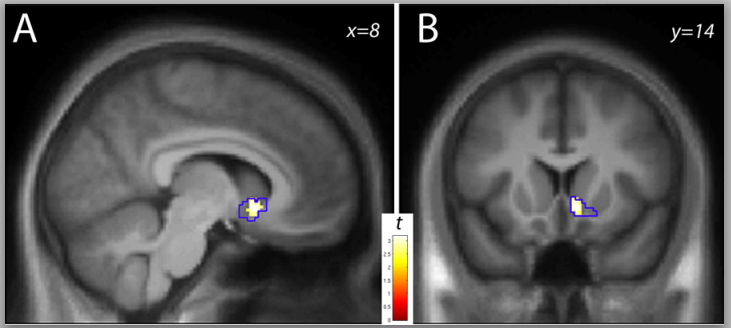Friday has become synonymous with happy hour, when workers retire to their favorite watering hole and enjoy a cold one with friends. The booze serves as a reward for working through the 40-hour workweek, but recent studies suggest that the taste beer itself, and not the alcohol, can trigger the brain’s reward system as well.
The main neurochemical at work here is dopamine, which is linked to the feeling of pleasure. As part of the reward system in the brain, dopamine is released after a rewarding activity, like eating or sex; conversely, the reduction of dopamine activity in the brain can reduce appetite and libido, so it acts as a positive feedback loop. This is how many addictions start: eating your favorite cookie triggers the dopamine release, which makes you want more cookies.

It’s been known for a while that alcohol and other drugs trigger this pathway as well, and sometimes even just the smell or sight of a favorite beer can set off the dopamine and make a person want one. This study in Neuropsychopharmacology, however, sought to test the effects of the taste alone by spraying very small amounts of the subjects’ favorite beers on their tongues over 15 minutes. Without the effect of the alcohol on the reward system – 15 milliliters over 15 minutes isn’t enough to do much of anything – scientists could track the taste-based dopamine levels in the subjects’ brains through PET scans, and all subjects were shown to have increased dopamine levels after the beer application.
The study also tracked levels in relation to family history of alcoholism. Heavy drinkers with no family history showed a medium level of dopamine, whereas subjects whose families did have a history of alcoholism showed much higher levels of dopamine release. While this may provide some insight as to why people with family histories of alcoholism are twice as likely to become alcoholics as well, scientists are hesitant to make the leap to a genetic component.






